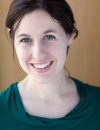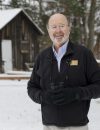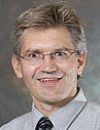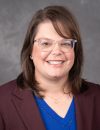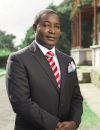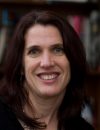UW In The News
-
AstraZeneca Covid-19 vaccine is 70% effective on average, data show
“The top line is this is more great news,” said Dave O’Connor, a vaccinologist at the University of Wisconsin-Madison, who is a volunteer in the AstraZeneca trial. (He believes he received the placebo, because he had no side effects after either dose.)
-
Can Cats and Dogs Be Allergic to Humans?
Maybe, says Douglas Deboer, a dermatologist at the School of Veterinary Medicine at the University of Wisconsin-Madison. There has been some research and experiments that suggest the possibility that pets can be allergic to humans, but nothing conclusive. If there are cats or dogs with these allergies, they are extremely rare.
“Anything’s possible,” Deboer says. “But it seems clear that it is not very common, if it exists at all.”
-
Potent new antifungal discovered in the microbiome of marine animals
Fungal infections affect hundreds of millions of people globally each year. “They’re particularly a problem for people whose immune system is suppressed,” says David Andes at the University of Wisconsin–Madison. This includes people being treated for cancer, organ transplant recipients and premature babies.
-
Trump campaign’s Wisconsin recount could quickly turn into a lawsuit
Barry Burden, director of the Elections Research Center at the University of Wisconsin-Madison, said the recount effort is clearly not actually about changing the election result given the margin.
-
What Trump Showed Us About America
Katherine J. Cramer is professor of political science and chair of Letters & Science at the University of Wisconsin-Madison. She is author of The Politics of Resentment: Rural Consciousness in Wisconsin and the Rise of Scott Walker.
The past few years have taught me just how removed the cultural elite in the United States is from many of the other people in this nation. By cultural elite, I mean those of us who create the knowledge and the media content people consume, as well those of us in positions of political and other decision-making power. There is a deep well of people in this country who are sure the system is not working for them, and we seem to be only coming around to recognizing how deep it goes.
-
Alzheimer’s Research Looks at Hot Spots Across the U.S.
In another of the studies released earlier this year, researchers at the University of Wisconsin School of Medicine and Public Health found that, based on autopsies, people who lived in the poorest neighborhoods at the time of their death were about twice as likely to have brain changes typical of Alzheimer’s disease as people who lived in the wealthiest neighborhoods. Researchers used the Neighborhood Atlas, a map developed by the University of Wisconsin that charts neighborhoods by socioeconomic status.
“We are in the baby steps of trying to understand what is driving this,” says Ryan Powell, a scientist who helped lead the study.
-
Video Games to Relax
Although the neuroscience of video gaming is not conclusive, there may be evidence that the benefits are not (pardon the phrase) just in your head. Recently, a group of researchers at the University of Wisconsin-Madison and the University of California, Irvine developed Tenacity, a game with the goal of increasing mindfulness.
-
The Cities Central to Fraud Conspiracy Theories Didn’t Cost Trump the Election
“From a partisan perspective, Trump’s vilification of cities makes no sense,” Barry Burden, a political scientist at the University of Wisconsin-Madison, said in an email. “It has little to do with his loss in Wisconsin, which resulted mostly from small shifts in the white vote outside of the city, particularly the suburbs, Dane County, and other parts of Milwaukee County.”
-
Researchers Produce First Artificial Icequakes
“If we’d had a little seismometer on there, we probably would have seen the same types of things you see on seismometers placed on a real glacier,” said Luke Zoet, a glaciologist at the University of Wisconsin–Madison and lead author of the new research. The results were published in AGU’s journal Geophysical Research Letters.
-
When will the 2020 election be certified?
“It culminates in having designated state officials provide a formal stamp of approval for the election,” said Robert Yablon, associate professor of law at the University of Wisconsin-Madison and expert on election law. Depending on the state, that official could be the secretary of state, an elections commission or a board of canvassers created for this purpose.
-
Fact Check: Can Republican State Legislatures Step In To Hand Donald Trump an Electoral College Victory?
“Direct appointment of electors by state legislatures is being discussed in some circles as an extreme measure, but is not actually a plausible scenario,” said Barry Burden, director of the Elections Research Center at the University of Wisconsin-Madison.
-
US Coronavirus: Half a million new coronavirus cases since Monday
The research team, led by two experts in the genetics of viruses — Dr. Yoshihiro Kawaoka of the University of Wisconsin-Madison and Dr. Ralph Baric of the University of North Carolina at Chapel Hill — studied the so-called D614G version of the coronavirus.
-
2020 presidential election: a tale of two economies
“If you’re a rural resident, you’re seeing that economically, your type of community is struggling,” said Katherine Cramer, a political scientist at the University of Wisconsin-Madison.
-
Coronavirus update: U.S. adds another 130,000 cases in a day: ‘This is what exponential math looks like,’ says expert
“This is what exponential math looks like,” Malia Jones, a social epidemiologist with the University of Wisconsin Applied Population Laboratory and the UW-Madison Department of Community and Environmental Sociology, told MarketWatch.
-
The U.S. has absolutely no control over the coronavirus. China is on top of the tiniest risks.
“Surfaces can occasionally be a source of transmission,” said Dave O’Connor, an expert on the genome of the virus at the University of Wisconsin at Madison. “They do not appear to be a major, or the major, source of transmission in areas where the virus is already endemic. If you have otherwise eradicated the virus, such as New Zealand or this region of China, vigilance will be required to prevent reintroductions by both goods and travelers.”
-
Charles Darwin’s hunch about early life was probably right
One researcher whose work is compatible with a pond environment is Lena Vincent of the University of Wisconsin-Madison – although she prefers to keep an open mind. She is trying to create sets of chemicals that copy themselves as a group. The simplest example would be a pair of chemicals A and B, where each has the ability to make the other, so A makes B and B makes A. Such a pair of chemicals would be able to self-replicate, even though neither could do so alone. In practice the sets of chemicals are more complicated than that, but the principle is the same.
-
What powers does Donald Trump still have? US law expert explains
Professor Robert Yablon, from the University of Wisconsin-Madison law school, told Checkpoint Trump has the same power he always has had as president, and can do what he wants, “within the standard bounds of the US Constitution and the law.
-
Grassland 2.0 Aims to Replace Soy and Corn Farming with Perennial Pasture in the Upper Midwest
“We’re shedding farms,” Randy Jackson remarks grimly one autumn day over video conference. A professor of grassland ecology in the department of agronomy at the University of Wisconsin-Madison, Jackson points to the fact that a record 10 percent of dairy farms in his state of Wisconsin shuttered in 2019, another milestone for a local economy that led the nation in farm bankruptcies last year.
-
Wisconsin’s largest county begins certifying US election results
David Canon, chair of the University of Wisconsin-Madison’s political science department, said allegations of fraud are a “complete fabrication”. He said he expects little, if anything, to come from the Trump campaign’s attempts at litigation across the country.
-
It Took a Group of Black Farmers to Start Fixing Land Ownership Problems in Detroit
While Hantz Farms didn’t dispossess anyone’s land, the threat is real, said Monica White, author of “Freedom Farmers: Agricultural Resistance and the Black Freedom Movement.”
“There has been a historical dispossession of land from Black farmers, and redlining is a part of that history,” said White, an associate professor of environmental justice at the University of Wisconsin-Madison.
-
Trump lawsuits unlikely to impact outcome of U.S. election, experts say
“The current legal maneuvering is mainly a way for the Trump campaign to try to extend the ball game in the long-shot hope that some serious anomaly will emerge,” said Robert Yablon, a professor at the University of Wisconsin-Madison Law School. “As of now, we haven’t seen any indication of systematic irregularities in the vote count.”
-
University of Wisconsin law professor on whether Trump can successfully sue in Michigan and Pennsylvania to stop ballot count
President Trump’s campaign said it has filed lawsuits to stop counting ballots in Michigan and Pennsylvania to increase access to observe the tallying process. Franciska Coleman, assistant professor of constitutional law at the University of Wisconsin-Madison Law School, says stopping ballot counts is an ‘extraordinary’ remedy. She joins ‘Closing Bell’ to discuss.
-
Gray wolves are leaving the endangered species list. But should they?
Hunting also increased in Minnesota, Wisconsin, and Michigan after wolves in those states were federally delisted, adds Adrian Treves, an ecologist who leads the Carnivore Coexistence Lab at the University of Wisconsin, Madison.
-
The presidential election and rising COVID cases prompt some to stockpile groceries again
Nancy Wong, a professor of consumer science at the University of Wisconsin-Madison, said it’s because stockpiling items, like we had seen earlier in the pandemic, serves as a security blanket.
“People feel assured and soothed by something that is concrete,” she said.
-
Mental health and the election: Tips for processing your emotions
Neuroscientist Richard Davidson, a professor of psychiatry at the University of Wisconsin-Madison and the founder and director of the Center for Healthy Minds, has helped create a series of meditative soundtracks to cope with the anxiety of the election.
-
Fears about economy under Covid lockdown helped Trump outperform polls
Broad-based shutdowns in March and April brought economic worries to places such as the rural upper midwest long before the virus was widespread there. Political scientist Kathy Cramer, from the University of Wisconsin-Madison, said this was certainly the case in Wisconsin, where an edge-of-your-seat finish is now playing out.
“There is no doubt that, in general, people were experiencing economic effects more than the health effects of the pandemic,” especially in the spring and summer, said Cramer. Cramer is also author of the Politics of Resentment: Rural Consciousness in Wisconsin and the Rise of Scott Walker.
-
Trump campaign wants a Wisconsin recount. But how would it work?
Barry Burden, director of the Elections Research Center at the University of Wisconsin-Madison, said earlier on Wednesday that Trump appeared to be trailing Biden by about 22,000 to 23,000 votes in the state, which would amount to less than one percentage point.
-
Why the Supreme Court probably won’t help Trump’s reelection fate
“I wouldn’t want to speculate on how the Court would rule, but the argument that voters relied on the rules in place on and before Election Day – and should therefore have their votes counted – is very strong,” said Dan Tokaji, dean of the University of Wisconsin Law School.
-
Politics pit neighbor against neighbor as Election Day looms
The fear created by threats and violence has a chilling effect on the nation’s political process, said Katherine Cramer, a political science professor at the University of Wisconsin at Madison.
-
Surging coronavirus cases loom large in pivotal Wisconsin
“The almost daily increases in cases, deaths, and hospitalizations in Wisconsin keep voters’ attention on the pandemic and that attention does not help Donald Trump,” said Barry C. Burden, the director of the Election Research Center at the University of Wisconsin-Madison.
- Newer stories
- Page 49 of 140
- Older stories
Featured Experts
Kathleen Glass: Food safety
Food is an integral part of Thanksgiving. And who doesn't love leftovers? But after how long should you leave those… More
Cecelia Klingele: Body-worn cameras by police
Madison Police Chief Shon Barnes is requesting that the city fund widespread use of body cameras for officers in the… More
Stanley Temple: Fall phenology
The days have finally started getting cooler and we all know winter awaits. Stanley Temple, an expert on birds, wildlife, endangered… More
Jonathan Temte: The seasonal flu shot
Family medicine professor Jonathan Temte is available to discuss this year's updated seasonal flu shot and flu prevention and control. More
Noelle LoConte: Pancreatic Cancer Awareness Month
Pancreatic cancer is one of the most difficult cancers to prevent, diagnose or treat. Earlier this month, music legend Quincy… More
Alvin Thomas: Movember and Men's Health Month
You might see more facial hair this month as Movember goes into full effect, drawing awareness toward men's health. Alvin… More
Dominique Brossard: Vaccine hesitancy
With a new administration poised to take power in January, a change in policy regarding vaccines may also be on the way.… More


